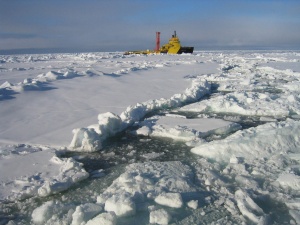Aug 20 2008
As part of the company's ongoing sponsorship of activities that stimulate interest in the sciences, PANalytical (Almelo, the Netherlands) is pleased to be supporting two students in the 2008 'Expedition to the Greenhouse World' - an initiative that is the brainchild of Utrecht University. Students competed for a place on the expedition with the winning pair being Barbara Terlouw and Robin van der Bles.

On the week-long expedition to Spitsbergen, Norway, the students will look back 55 million years and explore the climate change that took place at that time. In a world that was much warmer than it is now, large quantities of methane gas emitted by vegetation led to a significant greenhouse effect. The consequences were catastrophic, with many species becoming extinct. Parallels with today's concerns are manifold. Many believe that if we continue to burn fossil fuels at the current rate, we may reach the atmospheric CO2 concentration present at that time.
In Spitsbergen the students will examine the prehistoric traces of this 'greenhouse world' - rocks full of plant fossils, carbon-containing layers (originating from peat) and the footprints of the first hippopotamus-like creatures from the early Paleocene and late Eocene eras. From 24 August 2008, a daily weblog at: www.expeditiebroeikaswereld.nl/blog will chart the expedition's progress.
The competition for a place on the expedition challenged students to make a short film portraying their vision of the causes and consequences of climate change. What will the conditions be like in 2508, in an increasingly warm climate? Some 40 films were submitted and a panel of experts put the top 10 forward for final judging. On 4 June 2008, in a packed auditorium at NEMO science center in Amsterdam, these 10 films competed for the main prize. In the winning entry, 'Space Investigation', an alien from Mars analyses the demise of our planet caused by the carelessness of 'homo non-sapiens', the non-thoughtful people.
PANalytical places great emphasis on its own environmental management with, for example, a policy that all company waste is collected separately to allow for recycling. Over the last ten years, electricity consumption has remained the same and gas consumption has decreased by 10%, despite a doubling of production.